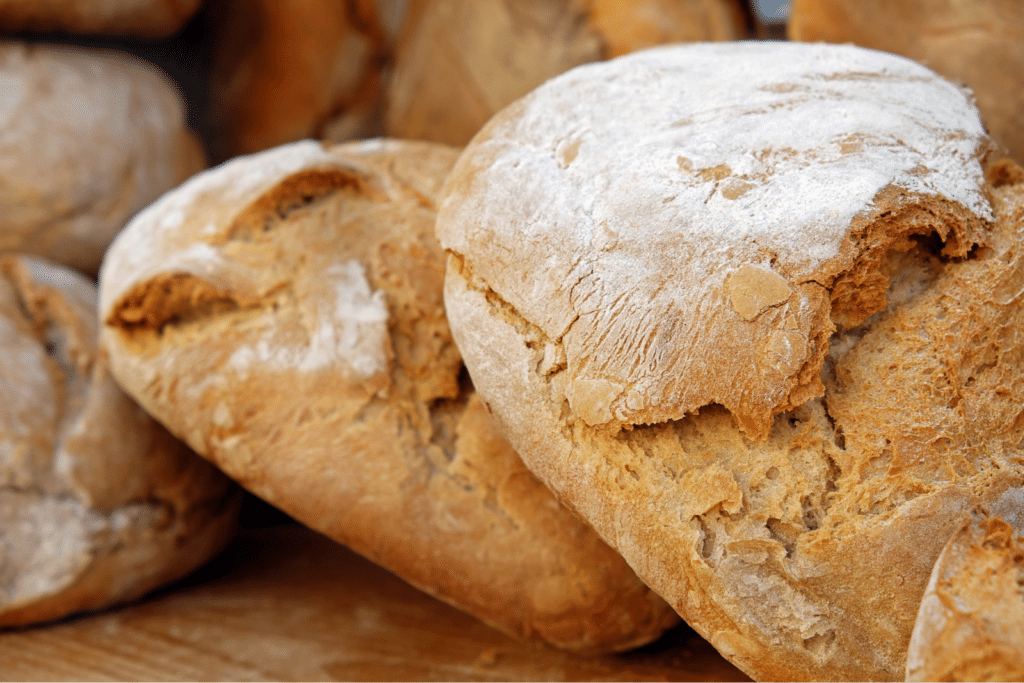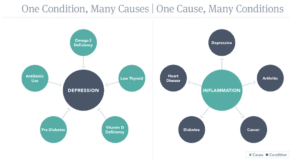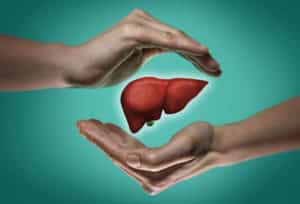You jump on the internet to see another headline about gluten sensitivity telling you it’s Bogus…
Then, the next time you turn around, you’re hearing from your co-worker how amazing they feel now that they’re off gluten. And what is the deal with people saying they have Non-Celiac Gluten Sensitivity??? Seriously, what does that even mean?
Yeah girl, I know – it’s confusing, SO I’m going to get all your questions answered. Watch the video or read the transcript below. Here’s what you’ll learn:
- 0:00 – Is Gluten Sensitivity Real
- 1:04 – The difference between Celiac disease and non-Celiac gluten sensitivity
- 2:59 – Symptoms of gluten sensitivity
- 4:30 – The study that keeps confusing everyone!
- 6:18 – Why Gluten can be so problematic
- 8:38 – Testing for gluten sensitivity
- 11:04 – But what do I do if I want to eat gluten and my test is positive?
IS GLUTEN SENSITIVITY REAL?
Gluten sensitivity, wheat sensitivity. You see it on the news; a new study comes out telling you that gluten sensitivity is ‘BS’. It’s not a thing. So all you people not eating gluten are crazy. Then you hear some information that gluten is a real problem. It causes leaky gut. So what do you believe?
The debate should really be over. We have research confirming what gluten does in the gut, and how common it is, which we’ll get into:
How common is Non-Celiac Gluten Sensitivity (NCGS)? There’s a range of numbers. Some people will say one in seven people have some sort of gluten related disorder. I’ve also seen some studies estimating that it may occur in as many as 1 in 20 Americans. So it is fairly common, and it causes people a lot of problems.
THE DIFFERENCE BETWEEN CELIAC DISEASE & NON CELIAC GLUTEN SENSITIVITY
Celiac disease is an autoimmune disease. It’s characterized by an inflammatory immune response to wheat, barley, gluten, rye, and other related proteins. It results in disruption of normal gut tissue structure and this includes an atrophy of the epithelial cell projections called villi. These are little finger like projections in the gut. There’s an enlargement of intestinal crypts and new epithelial cells will form from stem cells there, so we can see that there’s damage to the gut lining. The gold standard for diagnosing Celiac disease is an intestinal biopsy to look and see if that damage is happening in the gut. So that’s an overview of Celiac disease.
You’d assume that someone with Celiac disease would have digestive symptoms, but this is not always the case. There is something called Silent Celiac, in which there are no digestive symptoms. Instead there may be neurological types of symptoms, brain issues, nerve issues, etc. Typically, it takes longer to figure out what’s going on, but what they end up finding out is that they have Celiac disease, and it has caused enough damage that they’re getting these other symptoms.
Non-Celiac Wheat Sensitivity, also called Non-Celiac Gluten Sensitivity (NCGS) is a term that’s applied to individuals who experience symptoms in response to wheat or gluten ingestion. We’re going to talk about some people who may have some sensitivity to wheat or gluten, but they don’t have obvious symptoms because that’s possible too.
SYMPTOMS OF GLUTEN SENSITIVITY
- Bloating, gas, diarrhea, constipation, or irregular bowels
- Depression
- Anxiety
- Panic Attacks
- Eczema
- Low Vitamin D
- Low B12
- Brain fog
- Low Energy
- Autoimmunity
- Chronic headaches or migraines
- Weight gain
- Weight loss
- Joint pain
- Numbness in the fingers and joints
WHY GLUTEN CAN BE SO PROBLEMATIC
So what is it that gluten does? How does that interact in our gut?
Gliadin is a component of gluten that has an effect on the integrity of the intestinal barrier. It can trigger an immune response in some people. Dr. Alessio Fasano is a leading researcher in this area looking at intestinal permeability and there was a study done from his lab that took a duodenal biopsies from four populations. There were patients with Celiac disease, patients in remission from Celiac disease, patients with gluten sensitivity and patients with no gluten sensitivity.
They exposed all four groups to a ingestion of gliadin and all four groups had an increase in markers of intestinal permeability. So we can see that no matter what someone’s reaction is to gluten, they get an increase in intestinal permeability due to the gliadin protein.
So what’s going on there?
Gliadin stimulate zonulin and zonulin is a protein that regulates the opening and the closing of the tight junctions in the gut. So we’ve got our intestinal cells. In between these guys, we’ve got these things called tight junctions, and those tight junctions keep those cells nice and tight and closed. There’s a couple things that will stimulate zonulin. Bacteria is one. Gliadin and gluten are others. When those tight junctions move apart, we can have undigested food particles or bacteria that slip through the lining of the gut and get into the circulation. Once they’re in the circulation, the immune system gets involved, and mounts an inflammatory response.
This is exactly how the gluten protein can cause leaky gut. This process is associated with autoimmune issues and chronic inflammation in general.
TESTING FOR GLUTEN SENSITIVITY
So how do we determine if this is actually a problem for an individual? There’s a test called the Wheat Zoomer Test by Vibrant Wellness. It’s an awesome test. Cyrex also has a very good one. I use Vibrant Wellness in my practice.
This test looks at an array of different antibodies to the gluten and gliadin proteins, but it doesn’t just look at the proteins. It actually goes to the peptide level of the gluten and gliadin proteins and looks to see if there is an antibody reaction to these peptides. Then there’s a component of the test that tests for leaky gut.
One of the markers of leaky gut is called LPS. This is an important marker found on the Wheat Zoomer test. It stands for lipopolysaccharide, which is an endotoxin that is produced by many different strains of gram negative bacteria. These bacteria can inhabit the small intestine. LPS lines the outer membrane of this bacteria, and that can protect the bacteria and allow it to live in harsh environments. The test also measures antibodies to LPS. So, if we see that LPS and anti-LPS levels are elevated, we know that we have these endotoxins leaking out of the gut, AND the immune system is reacting to the presence of this LPS.
The test also looks for levels of zonulin, which we talked about, antibodies to zonulin, antibodies to actin, total IgG, and total IgA. All of these can give us an idea of what’s happening as far as intestinal permeability. So we get that along with the antibodies to the different peptides in the gliadin and gluten proteins. This will give us a pretty good picture of whether we are having immune responses to gluten and wheat. It also looks for a reaction to wheat starch as well. It is possible to react to wheat starch, but not gluten. This is a really comprehensive test, and very helpful for determining if there are leaky gut or gluten sensitivity issues going on.
BUT NOT EATING GLUTEN IS STRESSFUL!
So, what do you do if your lab test is positive for NCGS? Do you avoid gluten forever? What if the thought of this makes you want to run out and grab a piece of pizza (even if you haven’t eaten pizza in months!)? Side-note: I have definitely had this happen with a client – they could have cared less about bread, pizza, donuts…. THEN, positive NCGS results came in…
SUDDENLY, ALL SHE COULD THINK ABOUT WAS DONUTS! That little kid inside was ready to rebel to the word ‘forbidden’ or ‘avoid’ or ‘restrict’.
I was speaking with Andrea Klunder on The Creative Impostor about this topic. Super fun! Thank you, Andrea, for having me on your show. And we were talking about what happens when you don’t really have an obvious reaction to gluten, but then you get these positive results back.
Ultimately based on positive lab results, the recommendation is to avoid gluten. If you have some markers of leaky gut and we see that there’s a response to gluten, we know that even if we’re not having symptoms when we eat gluten, there is some immune response and inflammation happening in the gut.
The question is: Is gluten fueling the leaky gut, or just adding more fuel to the fire?
When leaky gut is present, we want to dig further. This usually means, getting a stool culture to take a look at the microbiome and assess for dysbiosis (imbalanced bacteria), parasites, yeast overgrowth, or SIBO. We also want to discuss stress. High cortisol, which is a stress hormone can reduce Secretory IgA, which protects the gut lining. If chronic stress is present, this can cause leaky gut. The Standard American diet can cause leaky gut. So, all of these things must be considered.
Gluten can be avoided while these other issues are addressed. Then, further down the line, if removing gluten is highly stressful for the individual, we can reassess to determine if this seems to be the cause of the leaky gut, or whether stress, diet, or other underlying issues may have been more problematic.
For many people, when they’re told to remove a food that they may be emotionally connected to, it can trigger stress. It could be that there were traditions in the family that involved that food. It might make them remember something that they found enjoyable. They might technically be physiologically addicted to that food. There are a lot of factors that come up. Part of my job is to get to the mind root cause of this connection or the need for that food and then see what we can do with it. This will look different for everybody.
SO, BROOKE, WHY DID I SEE THAT STUDY ABOUT NCGS BEING BOGUS?!
OK, SO there was this study that made big headlines and said gluten sensitivity is not real. The study found that it is actually the FODMAPs that are in wheat containing foods that are causing problems. They looked at people with IBS and found that people who were eating isolated gluten didn’t have problems, but that people eating wheat, did have symptoms. They attributed this to the FODMAPs that are present in wheat. FODMAP stands for fructose, oligosaccharide, disaccharide, monosaccharide and polyols. These are basically carbohydrates that act as prebiotics in food.
They feed our gut bacteria. This is a good thing. We want prebiotics in our diet. And so if our bacteria is in a good balance, if our microbiome is healthy, then oftentimes we will tolerate or do great with foods that contain FODMAPs. If our bacteria is out of balance or we have an overgrowth like SIBO or some other microbiome usually related issues, those FODMAPs might cause bloating. They might cause constipation or diarrhea and wheat in food does have FODMAPs.
And so this certainly can play a role and it can be that someone may find that when they eat wheat it causes problems and that it’s actually related to the FODMAPs, which usually means that they’re reacting to FODMAPs and other foods as well.
However, we also know from the information above that gluten causes a reaction in the body that can lead to leaky gut, and in turn begin to cause reactions to the gluten protein. Studies including a recent one from Columbia University Medical Center confirm that NCGS is in fact real.
I hope that this cleared up some of the confusion, and began to give you some of the information on NCGS!
To learn more about testing for NCGS, sign up for a FREE 30 minute consult
I’d love to hear what you’re searching for, and help you find some answers ;).
~Brooke




